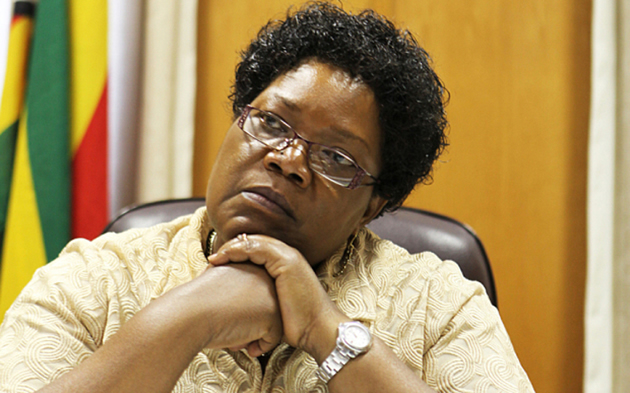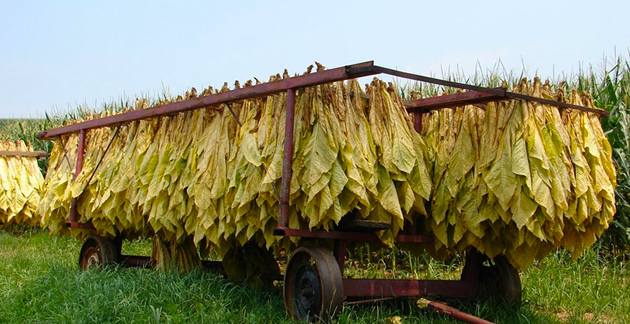The school-yard snapshot

Blessing Musariri Shelling The Nuts
I REMEMBER my first day at school. Someone was holding my hand as we walked up to the gate. It had been raining, the sky was grey and something was falling from the trees, it could have been leaves or blossoms, or rain. In my mind it’s jacarandas, but the season would have been long over so perhaps I am confusing it with another day that jacarandas were falling from the trees after rain. I didn’t cry. It was exciting, even then I was adventurous.
Lights were on in the classroom and there was pervading smell of food in plastic lunch-boxes and newness. It started to pour down and I remember vividly looking out the door and watching a child in a red raincoat, crying and resisting her mother who was trying to lead her to the classroom. The rain was beating down on them but the child seemed to prefer it as the lesser evil.
I liked going to school. I didn’t like getting up early to be on time for school and often I would be carried half asleep, bathed and dressed in that state, only waking up fully once in the car. I liked our teacher, a gentle and kind-voiced nun. I liked it when she took out her guitar and called us to sit on the floor in the front of the classroom while she sang and told us a story. I was fascinated by the hair of the white children and often I would choose to sit behind a white girl so I could lovingly pet and stroke it. It was so long, so silky, so envy-inducing. This loving gesture hardly ever went down well. The child in question would reach behind to pull her ponytail to the front of her body hissing, “Stop playing with my hair!” I would dislike that particular child intensely for a while, until the next time I felt compelled to pet her hair. They were so lucky, the least they could do was be gracious.
I soon realised that there were more differences between us children than just hair. The white girls had fancy stationery from South Africa and England and after the holiday they would have equally fancy sweets at break-time and often they would have extras. I learnt then that it was advantageous to have white friends. It wasn’t easy. The friendship were tenuous and changed from day to day, but the one thing that was consistent, was the need to keep trying because the rewards of such unions were highly desirable: fizzy pops and the loan of magic markers (coloured felt-tipped pens for drawing and colouring in). In retrospect, there was nothing magic about them, but try telling that to a six-year-old who never knew that colour could be so deep and vivid.
The other benefit of having white friends was the coveted birthday party invitations. I had been diligent at cultivating one particular friendship and felt that I was a shoo-in for this girl’s party when her birthday came up. So when break-time came around and the invites were being handed out, I waited with barely concealed impatience, why was she taking so long to get round to me? Finally all the invitations had been handed out and I wasn’t holding one. On other occasions I had stayed quiet when I didn’t get an invitation, mostly because even I knew when the friendship was not strong enough to question it. In this case, however, I had had a greater measure of success than on other occasions and I knew that it wouldn’t have been far-fetched at all to say that this girl and I had become good friends. I even remember who she was and later in high school we were to have a vicious fight in which racial slurs were traded and I can’t even remember the reason for that falling out, but I do remember this about that day, it was the first time I understood what it meant to be black.
Up until that point, it had simply been about the difference in material benefits and now it was about something else: being black was not a good thing. It meant exclusion. It meant we were not just children from different backgrounds, but that no matter where we were coming from, we were not acceptable to other people. Hurt and somewhat bemused, I asked how come I didn’t get an invite. I have never forgotten what this girl said to me. She held out her little hands, palms up to empty air and shrugged. “Sorry,” she said, “my mum said I couldn’t invite any black children.” This was a defining moment in my understanding all the trouble I had experienced in trying to gain white friends. It was something their parents didn’t allow. I began to observe the dynamics of the playground, who played with whom and why. I began to see other children, the ones without blonde hair and white-pinkish skin. There were some who were not quite brown like me but leaning in that direction. Their hair was not silky and straight neither was it tied down to their scalp with string, like mine. They were friendlier and more accepting, they tended to have an easier time making friends on either side but they were not invited to parties either. This is what drew us together — commiseration. We would “scandal” about the white girls behind their backs, reporting to each other who had stinge-ed us their magic markers that day or overlooked us when handing out lollipops. We told each other we didn’t care about their stupid parties, we would have our own and we wouldn’t invite them.
The first time I was finally invited to a white girl’s party, I went running. I even still remember the house, it was on the same road as Golden Stairs Nursery on Second Street extension. I don’t exaggerate when I say I went running. As soon as our car drew up to the open gate I jumped out and charged down the driveway like I had been 12 years a slave and was finally free. The girl’s name was Carla. She had dark brown hair and the friendship was genuine. The impression I retained of her parental background was that her mother was a single-mum who was something of a Hippy. I don’t know if my memory serves me correctly in this, but I do remember that she was very warm and I felt included and accepted at their house. I returned the favour and Carla came to my birthday party, her and another white girl named Louise. It was held in our garage in our all black neighbourhood, but they came, and they were not the first to leave either. I wouldn’t know those girls today if I was to meet them, but I thank them. I was later to develop prejudices of my own.
Further on, I developed genuine friendships with white girls, however, few survived high school. Our lives were just too different and even though we have lived in the same country since our births, we do not share a culture. We do not even share a national identity. We stood in solidarity in high school on one particular occasion that is clear in my head, when it was rumoured that the black girls were going to be told to cut their hair because of the grease being left on the books as a result of our oiling our scalps and keeping straight and curly perms in good order.
The white girls stood together and said that if the black girls had to cut their hair then so would the white girls. I wonder if such a thing would ever have happened, but knowing how crazy the girls in my form were that year the odds would have been high. Looking at race relations now, in Zimbabwe and in other areas of the world, we are no closer to eliminating the many daylights that separate us. We can barely get along and support each other, those of us who share the same history, the same culture, same skin.
Why would we expect any better from those who don’t know where we’re coming from? They say, “Charity begins at home”. This saying serves so many scenarios, everything begins and ends where it starts — within ourselves.










Comments